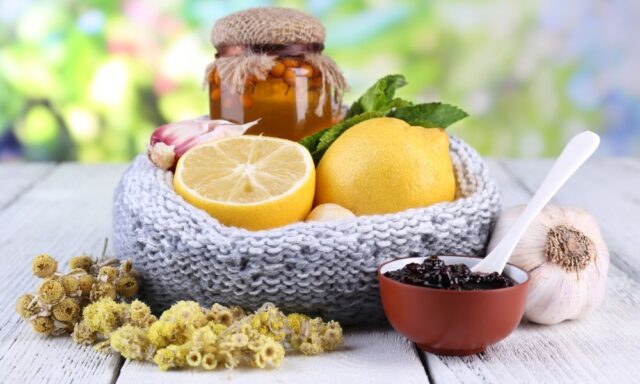Best Natural Herbs for Infection: Medically Proven
Are you interested in knowing the medically proven natural herbs for infection? Follow me through this article as I discuss everything you need to know about natural herbs for infection.
Antibiotics are medications used to combat bacterial infections. They cure strep throat or urinary tract infections (U.T.I.s). Antibiotics cannot treat viruses such as colds or flu.
Natural herbs like garlic, ginger, and honey contain antibacterial properties that can help fight infection. However, they’re not substitutes for prescribed drugs. Additionally, certain herbs can help the immune system fight infections even though they are less effective than antibiotics.
Abusing this antibiotic can result in liver and kidney damage and cause the bacteria to resist treatment.
Consequently, you can opt for natural remedies such as adding antibacterial foods into your diet to help prevent infections and fight the existing ones. These natural remedies reduce inflammation and promote the growth of beneficial bacteria.
READ ALSO: 5 Causes of Itchy Eyes, Signs and Remedies: Best Guide
Five Most Effective Natural Herbs for Infection
Ginger
Ginger is not just a spice but helps fight infections, too. It fights all sorts of bacterial infections. You can find ginger in different forms, like extracts, oils, and capsules, or add it to foods and drinks.
Aside from fighting germs, ginger also brings antioxidants and anti-inflammatory benefits to the body. Ginger fights bacteria like Streptococcus and helps with nausea, stomach bugs, and diarrhea. It can also tackle skin and respiratory infections and fight off intestinal worms.
It’s better to have ginger raw or in capsules for best results to keep it practical. Adding it to your meals or tea can improve your overall health. It is advised that pregnant women should go easy on ginger to avoid any risks. Still, ginger products like teas and tablets are famous for their ability to fight off viruses in lab tests.
Oregano
Oregano is used to boost the immune system and act as an antioxidant. Studies suggest that oregano oil’s ability to fight germs comes from carvacrol. Oregano helps fight bacteria like Streptococcus, which causes cavities. Carvacrol in oregano oil also helps cure issues like gastric ulcers and inflammation.
You can apply oregano oil mixed with olive or coconut oil to treat skin fungal infections. It’s also helpful in clearing sinus infections when diffused in the air. However, never ingest it or use undiluted oil on your skin.
It can also be used for cleaning. Mixing oregano oil, vinegar, water, and lemon can kill bacteria effectively.
To use oregano oil, mix 1 to 2 drops with water or oil and consume it. But use it for no more than two weeks at a time, and consult your doctor if you’re on other medications to avoid any issues.
Garlic
Garlic is a natural herb that helps fight bacteria like Salmonella, E. coli, and S. aureus. It is rich in compounds like allicin, ajoene, and allyl sulfide. You can find garlic concentrate or extracts at health stores or make your own by soaking it in olive oil.
It is generally safe to consume, but too much of it may lead to internal bleeding. It is advised to stick to two cloves as a daily dosage.
Applying garlic concentrate directly to wounds or blemishes can help it to heal. But remember to keep the intake moderate, especially for those with bleeding disorders or children.
To maximize its benefits, consume garlic raw. Crush a clove and let it sit to activate allicin, then eat it with water. Adding garlic to your diet helps fight infections and eliminate symptoms like colds, flu, and toothaches.
Honey
Honey is a natural remedy that helps fight against infections and heal wounds. The honey’s antibacterial properties and natural hydrogen peroxide and methylglyoxal make it more effective.
Honey treats conditions such as post-surgical wounds, oral mucosa, skin, ulcers and eye disease. Although there is no single approach to using honey, it’s essential to be cautious as children under 12 months are at risk of botulism.
Research has found that honey’s ability to fight drug-resistant bacteria offers an alternative to conventional antibiotics. Its high sugar content and low pH level effectively dehydrate and kill bacteria.
To enjoy the effect of honey’s antibiotic, apply it directly to wounds or ingest it to aid in internal infections. Opt for raw Manuka honey for maximum benefits. Remember to contact a doctor for guidance especially when treating children. Honey is a safe and soothing remedy when used correctly.
Echinacea
Echinacea is a perennial herb that cures infections and wounds. Recent studies confirm its antibacterial effects on respiratory bacteria and its potential as an antiviral agent to fight diseases in children and adults.
It is available in various forms like ointments, extracts, tablets, and capsules. Echinacea is easy to add to your diet. Echinacea is recommended to be taken thrice daily for up to 10 days.
Studies suggest that echinacea varieties like E. pallida, E. angustifolia, and E. purpurea are effective against viral infections like herpes and influenza. E. purpurea also improves the immune system, making it a remedy for fighting viral illnesses.
READ ALSO: Arthritis and Pregnancy: Everything you Need to Know 2024
Risks of Natural Antibiotics
Unlike pharmaceutical drugs, herbal supplements don’t undergo F.D.A. approval for safety and effectiveness before taking them to the market. This means they aren’t approved to treat or prevent diseases.
You must know that these natural products can still pose risks to your health when consumed in high quantities or by individuals with health conditions. They may cause side effects and interact with other supplements or medications.
Conclusion
In conclusion, natural herbs like ginger, oregano, garlic, honey, and echinacea are great options for improving health. They’ve been used for ages and have strong abilities to fight off bacteria and viruses.
But we need to be careful with them. Unlike medicines you get from the pharmacy, the F.D.A. don’t check these herbs before selling them. That means they might need to be more safe and effective. Using too much, using them for a long time, or if you have specific health problems, can cause issues or interact poorly with other medicines.
So, even though these herbs can help, it’s essential to be smart about it. Always read the labels, talk to your doctor, and use them carefully. Understanding the good and bad sides of natural antibiotics will help us use them safely and maximize their healing abilities.





















